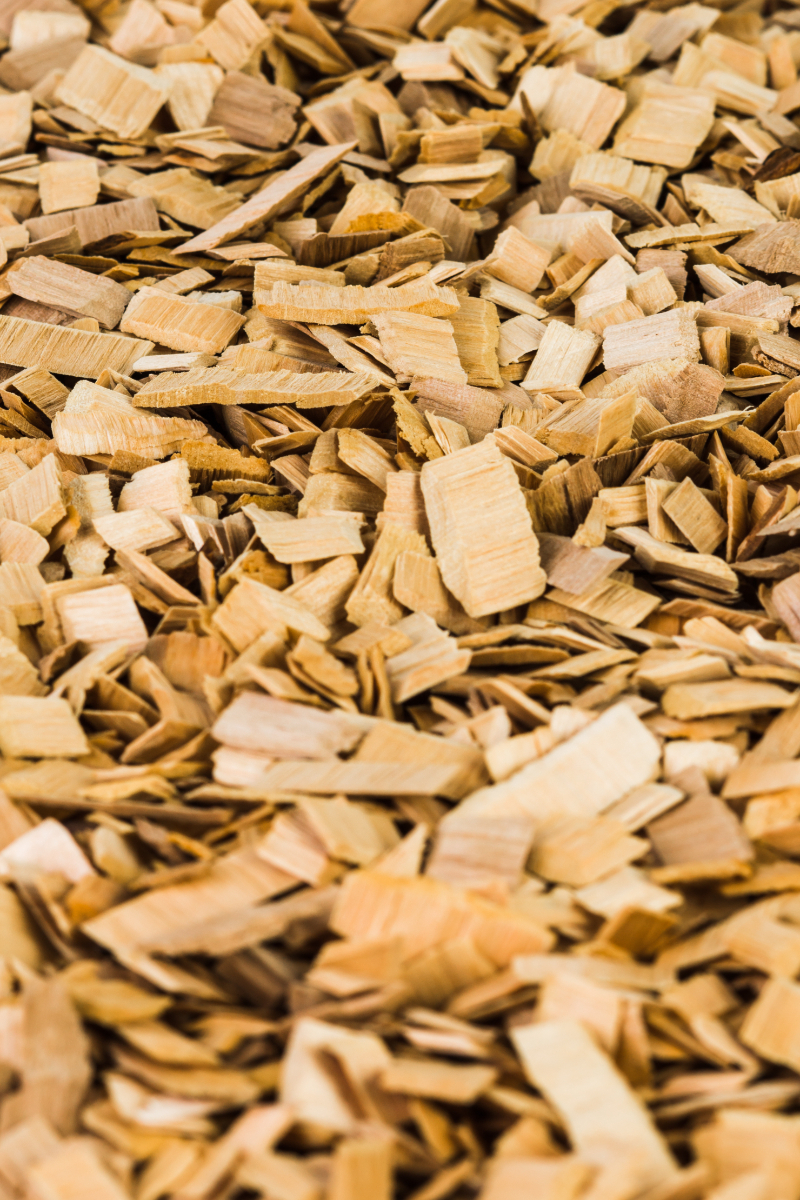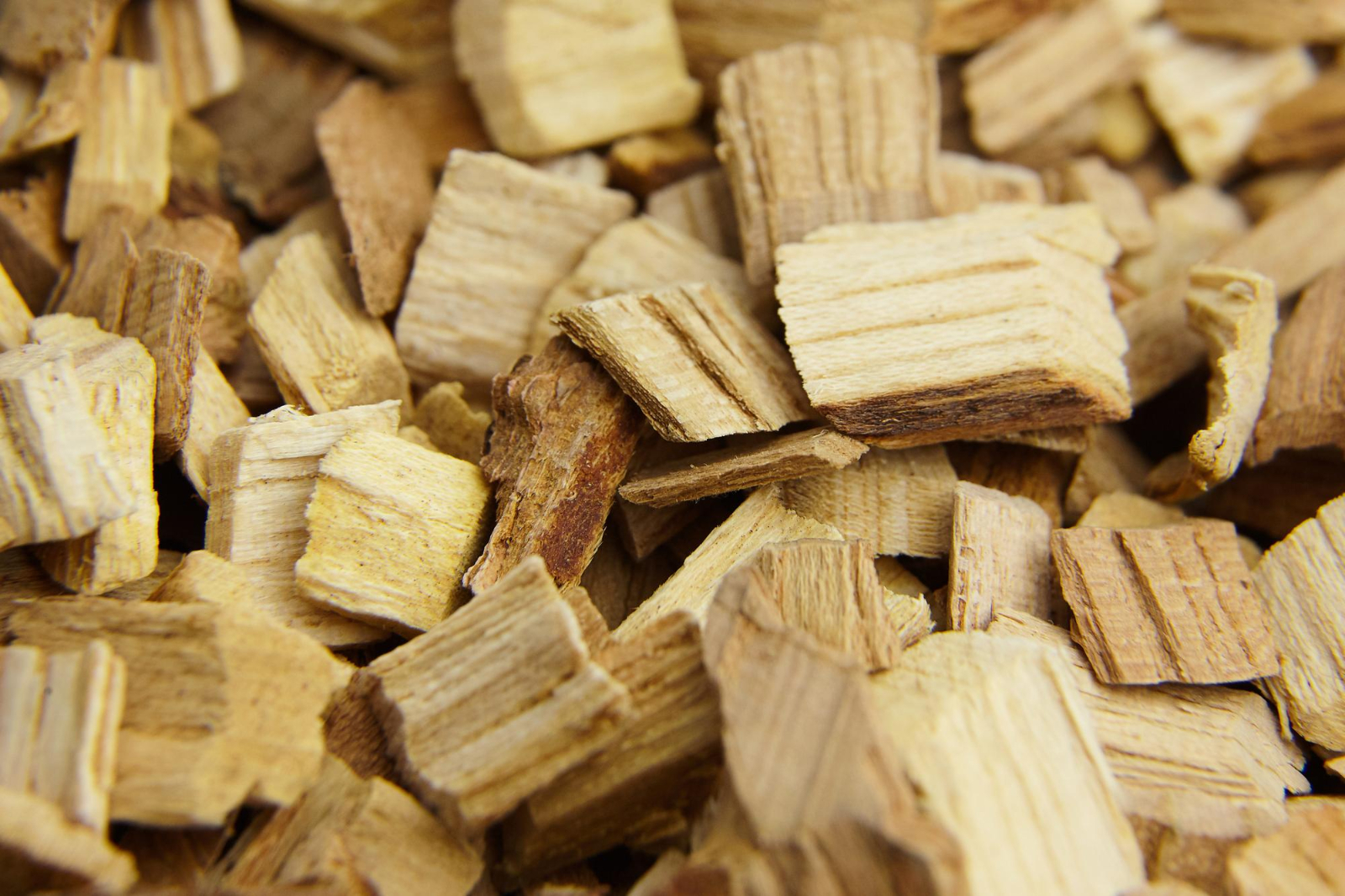Discover what to use for mulching in your UK garden. Explore eco-friendly wood chips, bark, compost, straw, and more to enhance soil health and suppress weeds.
Wood Chips and Bark
Wood chips and bark are a few of the most effective mulching materials for gardens and landscaping. Their natural composition, availability, and wide-ranging benefits make them ideal for improving your soil health, suppressing weeds, and enhancing the appearance of your outdoor space.
This type of mulch can create a protective covering over your soil's surface that slows down water evaporation and keeps your plant roots consistently hydrated. Additionally, a thick mulch layer makes it difficult for weeds to grow through, reducing the competition for water and nutrients.
Mulching with bark or wood chips helps protect the soil from erosion caused by heavy rain or wind. The mulch layer cushions the impact of the raindrops and prevents the soil from washing away. Bark and wood chips also look natural and tidy, helping to enhance the appeal of your flower beds, borders, and pathways.
Moreover, wood chips and bark are often by-products of tree care and sawmill operations, making them an eco-friendly choice. Many suppliers offer sustainably sourced options, and they are readily available from garden centres, landscapers, or local councils.
Compost and Manure
Compost and manure are full of organic nutrients like phosphorus, nitrogen and potassium, which are all crucial for healthy plant growth. When these materials are used as mulch, they release these nutrients into the soil and give your plants a steady supply of nourishment.

Like other mulching materials, compost and manure retain moisture by limiting evaporation. This is particularly beneficial during hot, dry weather, since it keeps the soil cooler and reduces the need for watering. Organic mulches also help regulate your soil temperature and shield plant roots.
As manure and compost decompose, they release nutrients into the soil and enhance its drainage and aeration. This creates the ideal conditions for strong root growth and supports the activity of organisms like worms and microbes, which are essential for maintaining a healthy, balanced nutrient cycle.
Both compost and manure are renewable resources, that are often made from kitchen scraps, garden waste, or animal faeces. Using these materials as mulch reduces landfill waste and enriches your soil in a natural way.
Straw and Hay
Straw and hay are widely used for mulch since they can improve your soil quality and plant growth. When applied correctly, they act as protective coverings that contribute to both the short-term vitality of plants and the long-term improvement of the soil.
This type of mulch reduces water evaporation from the soil and maintains a consistent moisture level in the root zones. These benefits are crucial during high temperatures or droughts, as they decrease the rate of irrigation and protect plants from heat-related stress.
As straw and hay decompose, they slowly add organic matter into the soil. This natural process enhances the soil's structure, aeration and moisture retention. Additionally, during colder weather, straw and hay provide excellent insulation that protects the plant roots from sudden temperature changes and frost. This makes them particularly useful for overwintering crops or protecting perennial plants in colder climates.
Organic vs Inorganic Mulch
Organic mulch is made from materials such as wood chips, bark, straw, hay, compost, manure, grass clippings, and shredded leaves. One key benefit of organic mulch is its ability to add valuable organic matter to the soil as it decomposes. This process enhances your soil structure, boosts microbial activity, and increases the soil's fertility, making it ideal for flower beds and vegetable gardens.
Organic mulches are also highly effective at retaining moisture and suppressing weed growth. However, since they gradually decompose, they need to be replaced over time. Additionally, if they aren't properly maintained, some organic mulches can attract pests.

Inorganic mulch refers to materials like gravel, stones, landscape fabric, rubber mulch, and decorative aggregates. These mulches don't break down over time, making them long-lasting and low maintenance.
They are particularly useful in areas where appearance, durability, and weed control are more important than soil improvement, such as around paths, driveways, or ornamental shrubs.
While inorganic mulches are effective at suppressing weeds and reducing moisture loss, they don't add any nutrients to the soil. In some cases, they can also retain too much heat, which can put stress on the plants during warm weather.
For UK gardens, the choice between organic and inorganic mulch often depends on the area being mulched and the desired outcome. Organic mulches are ideal for enriching flower beds and borders, however, inorganic mulches are ideal for more permanent or decorative areas.
We provide fast, reliable wood chip delivery services for garden and landscaping projects across Warrington, Preston, Blackburn, Manchester, Oldham, Stockport, Liverpool and Chorley. Our sustainably sourced wood chips help with drainage, weed control, and natural ground cover.





